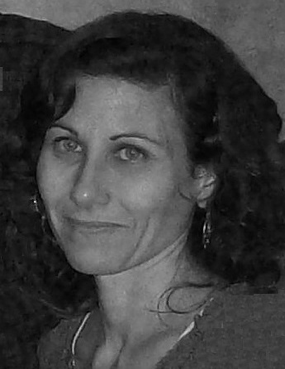Maria Teresa Camerada

XXX Cycle - (A.A. 2014-2015)
IDAUP
Home Institution: University of Ferrara
Scholarship (bound research topic)
Curriculum: Architecture (ING-IND10)
Research Topic: Indoor environments & human health
Tutor DA-UNIFE: Giacomo Bizzarri
Tutor Polis University: Sherif Lushaj
Nationality: Italian
Email: cmrmtr@unife.it
Profile
Biography
Bachelor’s Degree in Science for Cultural and Environmental Heritage and Master’s Degree in Conservation and Diagnosis of Modern and Contemporary Artworks at the University of Ferrara. She has increased her interest in materials, chemical and physical degradation, biodeterioration, indoor and outdoor contamination and interactions between materials and environment. In 2013 she was beneficiary and owner of research fellowship by the call for public competition made by the Emilia Romagna Region for "projects of industrial research, pre-competitive development, technology transfer," project’s title: Particulate Contamination of Hospital Environments. The main activities carried out were environmental monitoring and data collecting and processing. The aim was evaluation of surfaces contamination in hospital stays and characterization of inorganic and organic particles by SEM (Scanning Electron Microscopy). In 2014 she was research fellow about “Characterization of phenomena particle pollution of confined environments” at the University of Ferrara. At the end of the same year she started the International PhD course. Actually she works at TeckneHub in Ferrara.
Research skills
Cultural and Environmental Heritages | Diagnosis| Monitoring| Contamination | Data processing
Scientific activities
ORCID ID:
0000-0002-0230-9197
IRIS UNIFE ID:
rp01399
Doctoral research
Environmental Health Indicators. Proposal of a measurement scale for verification of the effectiveness of cleaning/sanitizing processes/disinfection in nosocomial environment.
The degree of environmental hygiene in hospital stays often is evaluated on olfactory and visual perception, because there are not universally recognized standards for measuring the contamination level and consequently the effectiveness of sanitation practices. The inanimate surfaces are a reservoir for microorganisms that can survive for days on those, increasing the risk of infections for other patients, when sanitation practices are not carried out properly. The research objective was to define the acceptability levels of contamination to and verify the effectiveness of the sanitizing procedures in nosocomial stays by the microbiological monitoring that was performed in several Italian hospitals. In fact, in these facilities two different sanitizing protocols have been applied: traditional method with chemical products and a probiotic-based system. The data were collected by sampling, performed with Rodac plates containing selective and differential culture media, suited for the development of microorganisms that are responsible for the onset of the greatest number of infections. The main aim of the research is to define the threshold index to evaluate the contamination as an objective measure of environmental hygiene in nosocomial stays; but also the evaluation of the reduction and biostabilization of the microbial load in the short and long term; the verification of the effectiveness of products and of the sanitization treatment put in place; the definition of a sampling protocol and the standardization of the criteria for reading and interpreting of the obtained results.
Keywords
Contamination | Hospital surface bioburden | Sampling | Cleaning | Data processing

